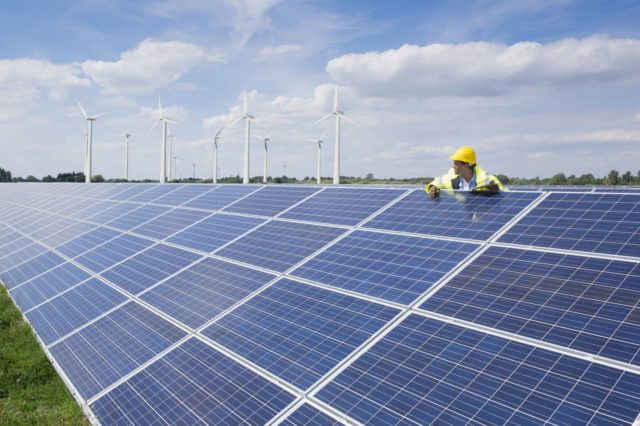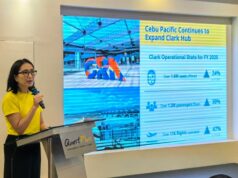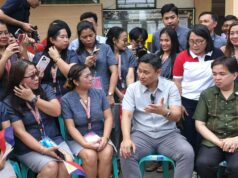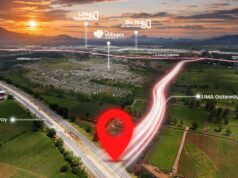MANILA, Philippines – The Philippines was host of the 2021 Conference of the Electricity Power Supply Industry (CEPSI), the biggest biennial conference in the East Asia and the Western Pacific region. The conference gathered 2,500 thought leaders, experts, and professionals in the power and energy industry, and served as a platform for exchanging ideas and strengthening ties among industry players. As this year’s host, the Philippines brought vibrance and energy, and promoted the agenda of inclusive access to electricity, power grid resilience, and environmental stability.
CEPSI 2021 brings together energized countries and empowered communities through a series of programs, keynote addresses, panel discussions, webinars, and technical paper presentations. These sessions explored the themes of creating and developing sustainable energy that is socially inclusive. cost-effective, enabled by resilient, innovative, and secure solutions.
On the second day of the conference, Schneider Electric Philippines hosted a webinar led by Smart Grid Sales Head for APAC Antoine Thomachot. The session delved into how distributed energy resources (DERs) are the answer to a more sustainable, secure, cost-efficient, and accelerated future for smart grids.
The power industry is facing unprecedented changes
Over the past year and years to comes, the industry has witnessed trends such as a surge in connected devices last 2020, an anticipated 60% increase in overall electricity demand by 2050, and power generation investments in zero-carbon fuels taking up 86% of the market until 2040.
“This is simply because the world is becoming more electric, digitized, decarbonized, and decentralized,” said Thomachot. “However, these trends pose great challenges to not only the industry, but the world as we know it.”
As the power industry continues to work towards a more sustainable future, they also face potential challenges such as being able to support and meet the growing electricity demand while decarbonizing electricity generation to avoid catastrophic climate change, maximizing renewable power while managing the irregularity of various energy resources, and maximizing DERs while managing a grid balance.
“In addition, an increase in connected products and innovations also means an increase in security risks and potential attacks,” said Thomachot. “This is something we at Schneider Electric are covering with our solutions and products.”
Medium Voltage solutions against greenhouse gases
To address these challenges, Thomachot introduced Schneider Electric’s AirSeT: Powered by Air & Digital, the latest solutions to combat carbon emissions and greenhouse gases.
“In terms of sustainability, air is the best gas,” said Thomachot, who explained that the AirSeT range will be powered by pure air only. “It safer and sustainable by nature, and it will help prepare your operations for future regulations and challenges.”
Software solutions for Grid Utilities
“What used to be an advancement in technology is now the baseline,” said Thomachot as he shared a photo of a control room with multiple screens. “This is the standard on how electric utilities can better manage their grid. There must be a wide range of screens that are software-integrated, as well as solutions that are sustainable, reliable, and efficient with regards to grid management.”
Through standard solutions like ArcFM/ArcGIS and ADMS integration, operators have access to dynamic maps that provide situational awareness and grid data with advanced controls, as well as a connection to specialized partners that help with risk mitigation.
“Again, this is just the baseline for better data management,” said Thomachot. “We at Schneider Electric can help operators step up in improving their grid.”
Driving the evolution of the grid with Distributed Energy Resources (DERs)
“Distributed energy resources are the best we have to offer for this,” said Thomachot. “DERs can help reduce energy costs, promote grid stability, and function as an economic accelerator.”
As the capital expenditure for utility scale solar photovoltaics (PV) has been steadily decreasing over the years, there is an opportunity for investors and consumers alike to start investing in more renewable energy resources. In fact, it is expected that these renewable energy resources may cut the Philippines’ electricity rates by 30%.
“If you want to take it to the next level with resilience and reliability, it is crucial to invest in DERs, as these also provide the storage and capability you need,” said Thomachot.
DERs reduce both average and maximum grid demand by providing a wide range of backup solutions. With DERs, there is a more stable and normalized demand in the grid. They also work as economic accelerators by providing employment opportunities and business growth, an increase in residential and commercial development, power security and stability, as well as reduced costs of backup power generation.
“This is just the tip of the iceberg,” said Thomachot, as he concluded his session. “There is a multitude of opportunities to keep innovating and developing the grid, especially here in the Philippines, and we at Schneider Electric are more than happy to help operators and consumers find the perfect solutions that work best for them.”





